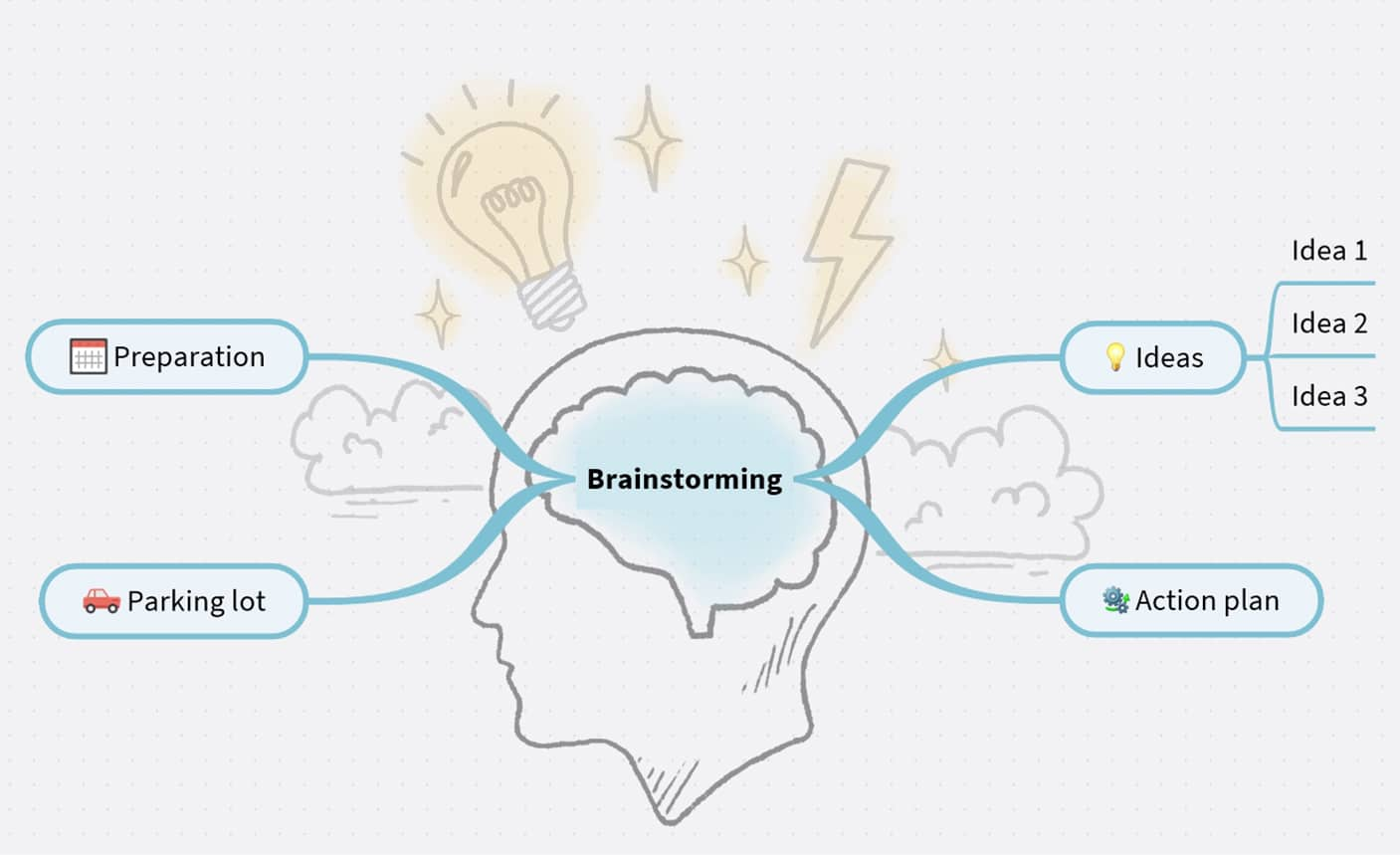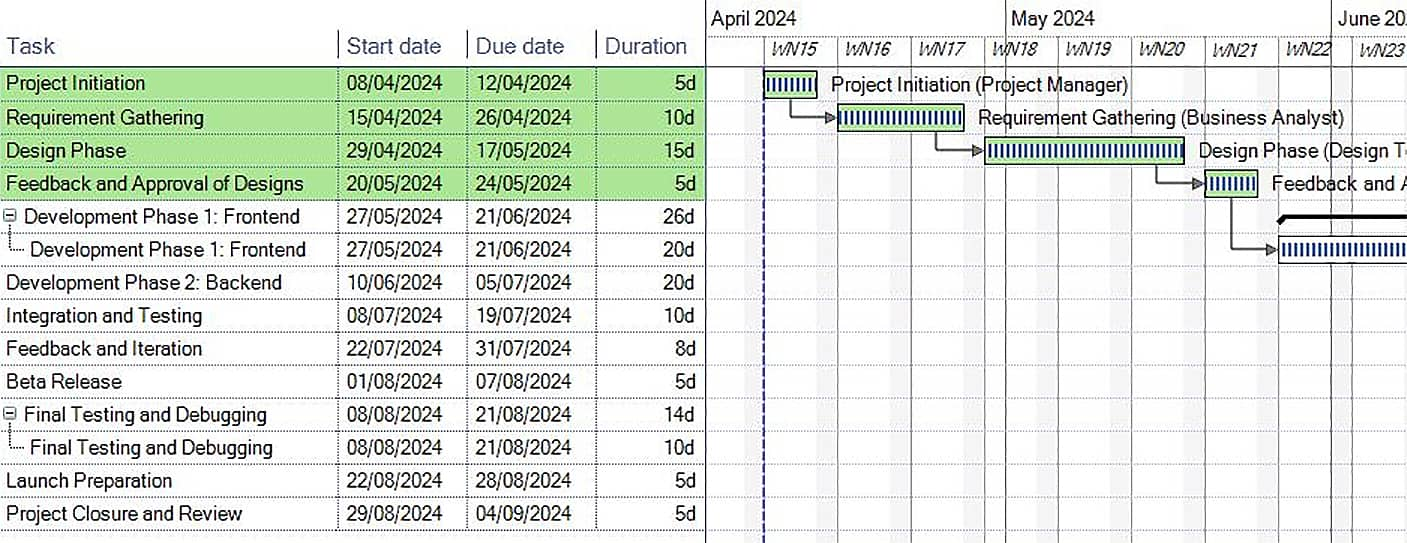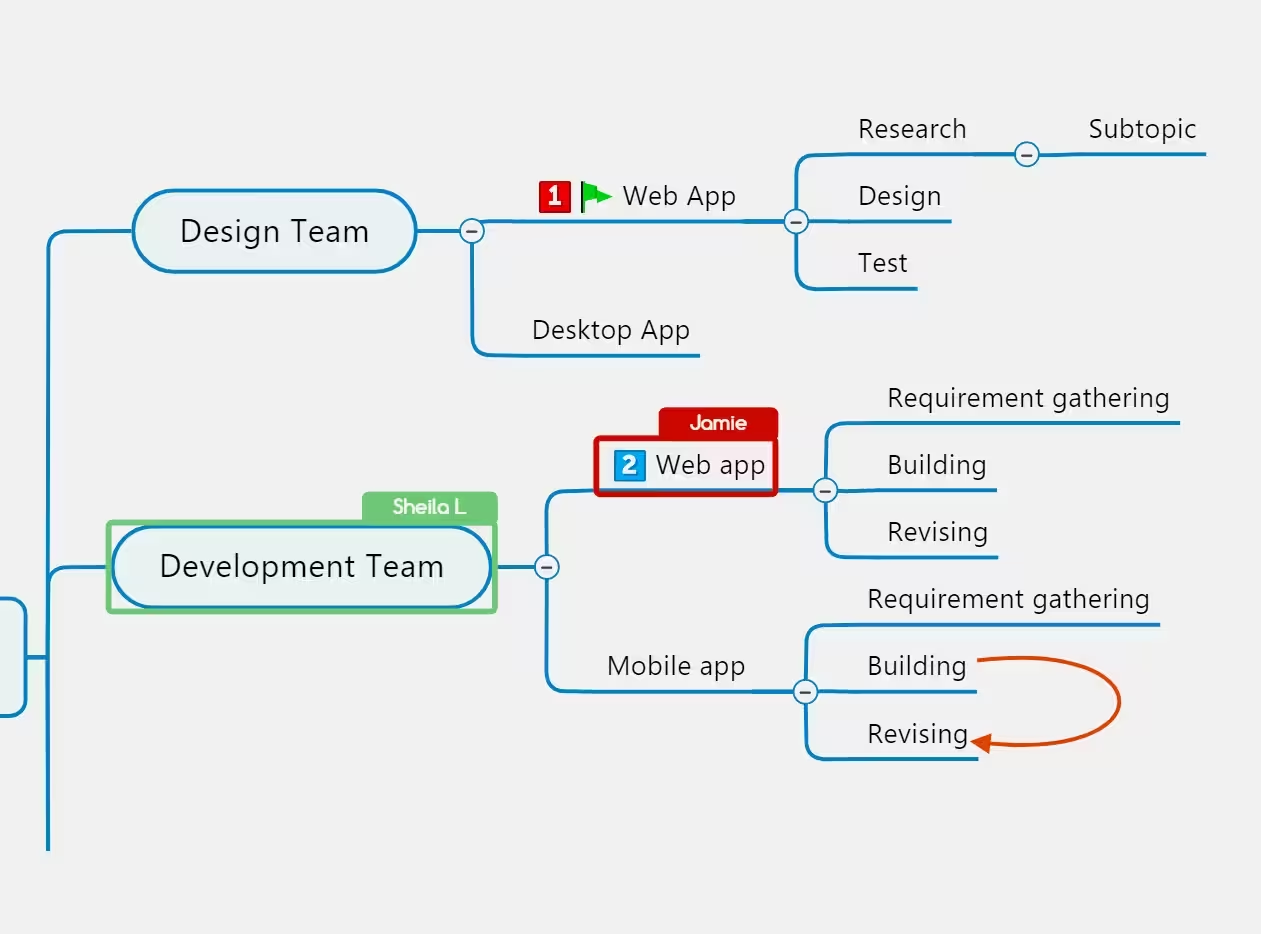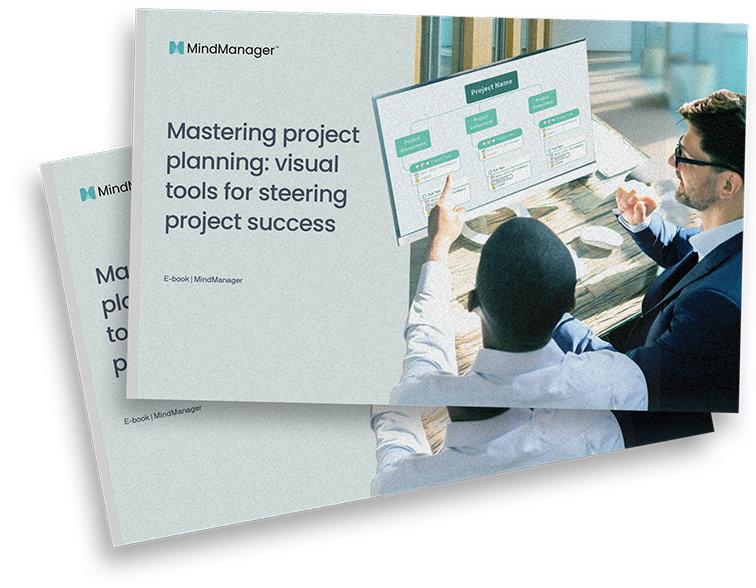Project management can be complex, often requiring meticulous organization and clear communication. This is where MindManager® 's powerful visualization tools come into play, offering a structured yet flexible approach to managing various aspects of a project.
Don't let good ideas get lost in the shuffle. MindManager keeps your plans and tasks in one place, helping teams organize goals, set expectations, and prioritize tasks in one easy-to-find location. Simply create a new board or use a template and start adding meeting notes, links, resources, and more.
No more lost notes or wondering who is responsible for a specific task. Add support documents, include notes and mind maps, and view the status of time-critical tasks at the click of a button.
Trade unproductive project requirements meetings and complicated message threads for a comprehensive visual map that clearly outlines goals, expectations, requirements, tasks, and priorities.
Build your project timeline, share meeting notes, assign tasks, and store source documents in one visual board that everyone can access—or only provide access to specific boards your team needs to perform. Streamlined project management means your projects get launched faster.
A distributed workforce makes collaboration challenging. With MindManager, you can create digital whiteboards, outline project timelines, and allow everyone to share ideas with our sticky notes feature.
Even if your team works side-by-side in real life, collaboration is easier when the whole team can share ideas in one central location.
Move seamlessly from ideation to go-to-market with MindManager's native integrations. Work is easier when everyone works together. That’s why we made sure MindManager works seamlessly with your favorite platforms for cloud storage, project tracking, and data analysis tools.
Explore all appsVisual project planning is your answer to avoiding costly mistakes and ensuring your projects run smoothly.
Here’s what you’ll learn in the e-book:
Discover our on-demand project management webinars:
Designed to simplify and enhance every stage of your project, from initiation to completion, these templates are powerful tools for organizing, visualizing, and communicating project details.
You’ll get templates for a:
For Project Management it is currently proving to be very useful in supporting the development of content for cybersecurity eBooks. Chapters and topics can easily be chunked and status-tracked, and linkages to artifacts, resources and primary sources can easily be managed.
Read reviewJoin millions of users across thousands of global organizations
30-day fully functional free trial



 E-Book
E-Book
 Webinar
Webinar
 Templates
Templates
